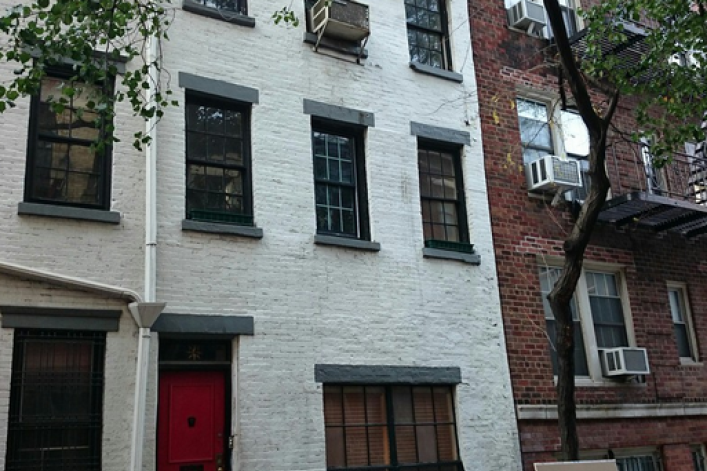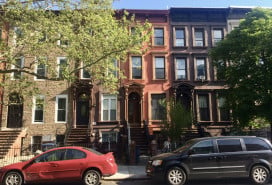Yes, you can have a $10/month, 50-year lease in NYC—technically, anyway

Updated 4:39 p.m. with a comment from Steven Sladkus, the landlord's attorney: File this under problems we wouldn't mind facing: a West Village resident is fielding a lawsuit from his new landlord over the validity of his double-take-inducing lease, which spans 50 years and cost just $10 a month, the New York Post reports. Yes, those are the correct amounts of zeros.
It's a convoluted tale, but essentially, Jud Parker supposedly has the right to a duplex at 14 Minetta Street thanks to a sweetheart deal from his former landlord, Wilfred Schuman, who died in 2010. Parker claims he was like a "surrogate son" to Schuman. He currently sublets the place for $2,500 a month.
The building's new owner, Pari Dulac—who bought No. 12 and No. 14 Minetta Street for $2.75 million last week—claims that Parker either "manipulated" Schuman into the deal (Schuman suffered dementia), or forged the lease outright. Neighbors say they've seen little evidence of Parker actually living in the building.
Either way, if the lease is legitimate, Parker has every right to the outlandishly favorable terms, notes Dean Roberts, a real estate attorney at Norris McLaughlin & Marcus who has worked on landlord/tenant disputes. If it includes a provision that allows subletting, Parker's in the clear, he adds. "The fact of the matter is, [Dulac] bought the building with this lease in place," real estate attorney Terry Oved says. (If the apartment were rent-stabilized, it would be a different story, since those leases have a two-year limit, plus restrictions on subletting.)
Indeed, "the first question that comes up is why didn’t they look into who the hell was in the building [before they bought]," adds Roberts. "[Dulac] could in theory have a claim, but there are a lot of back questions that go into this one. They didn’t do their due diligence."
We spoke with the seller's attorney, Steven Sladkus, who said that his client did do her due diligence, and the decision was made to purchase while fighting a lease both the seller and the buyer believed to be invalid. "Even though the lease wasn’t recognized by the seller [a relative of Schuman's], the seller’s attorney sent Parker [and his roommate] a termination notice and demand to surrender the premises due to the invalidity of the lease," explains Sladkus. The purchase agreement specifically stated that the seller disputed the validity of Parker's lease, says Sladkus, with the understanding that the new landlord would continue the suit seeking action to declare the contract null and void. "For convenience purposes, the closing was held first and the current owner commenced the lawsuit," he adds. In other words, Dulac bought the place knowing Parker was in place and she'd be in for a legal fight.
Dulac is likely to have a tough time finding proof (or a reliable witness to testify) that the lease wasn't a proper gift, just as Parker will probably face an uphill battle providing evidence that it was. These types of disputes almost always end in settlements, the lawyers say, with the landlord buying the tenant out of their lease. That's likely how things will play out on Minetta.
For her part, Dulac has said she would rent out the two-bedroom for $6,000 a month if she manages to get Parker out, bringing the apartment's 50-year value to around $3.5 million. "The value of his apartment is more than the value of the actual property," says Oved. "The place probably would have sold for more if this lease hadn't been in place." Let's hope she factored the cost of a major buyout into the purchase.
Related:
How do I bequeath my co-op to my sister?
What's a buyout really worth? Use this calculator to figure it out























